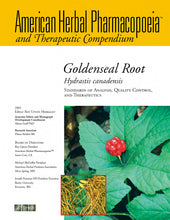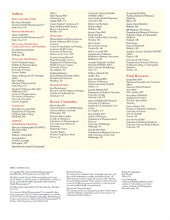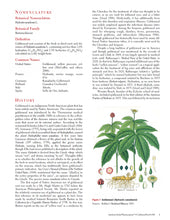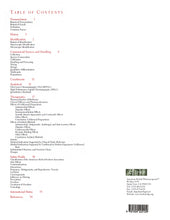
The root of goldenseal (Hydrastis canadensis) is primarily incorporated into herbal formulas for upper respiratory mucus and is often used in combination with echinacea root. Historically, goldenseal was one of the most widely used herbal medicines for infections of the gastrointestinal and reproductive tracts, as well as sinuses and eyes, and is considered a specific for supporting healthy mucus membranes. Despite such extensive use, little modern research has been done on its therapeutic efficacy, though considerable investigation supports the broad-spectrum antimicrobial effects of its primary alkaloid berberine. Some research suggests that berberine is not well absorbed, casting doubt on its efficacy systemically. However, other research shows greater absorption of berberine when tissues are inflamed, precisely the type of condition in which goldenseal was historically used.
There is substantial concern regarding the quality of goldenseal root products, many of which may be diluted with goldenseal leaf or other berberine-containing plants, such as the roots of Oregon grape, coptis, or barberry. It is fairly easy to detect adulteration of goldenseal as true goldenseal is characterized by the presence of berberine, hydrastine, and hydrastinine, and the absence of palmatine.
Information is also presented in the AHP monograph on the conservation status of goldenseal, which was once prevalent along most of the East coast of the US. Its extensive use has caused serious depletion of native populations and it is a CITES Appendix II listed herb.
the world for improving cognition and memory. Between 1975 and the early 2000s, more than 40 controlled trials were published concerning the use of ginkgo leaf extract to treat patients with cerebrovascular insufficiency.
The overwhelming majority of the available studies report positive findings, such as improved cognition and even a slowdown in the progression of Alzheimer’s. Management and treatment of Alzheimer’s patients is one of the greatest drains on Medicare expenses, costing the US in excess of $100 billion annually. A slowdown in the progression of Alzheimer’s by use of a supplement, such as a properly made ginkgo extract, could save hundreds of millions in health care costs. Unfortunately, ginkgo extracts have been subject to widespread and highly sophisticated methods of adulteration that have persisted for more than 20 years.
It is fair to say that ginkgo is one of the most commonly adulterated herbal preparations on the market, predominantly due to the difficulty for analysts to detect adulteration, even when using pharmacopoeial methodologies. The AHP monograph addresses these issues of adulteration and presents solutions for detection.
Another major safety concern that has been raised for ginkgo is its potential to potentiate the effects of conventional anticoagulants, leading to increased bleeding events. This concern was based primarily on a few case histories suggesting such an effect and in vitro studies showing ginkgo extract to inhibit platelet activating factor (PAF). However, a number of formal clinical studies have specifically addressed this issue and the findings are presented in the monograph.







